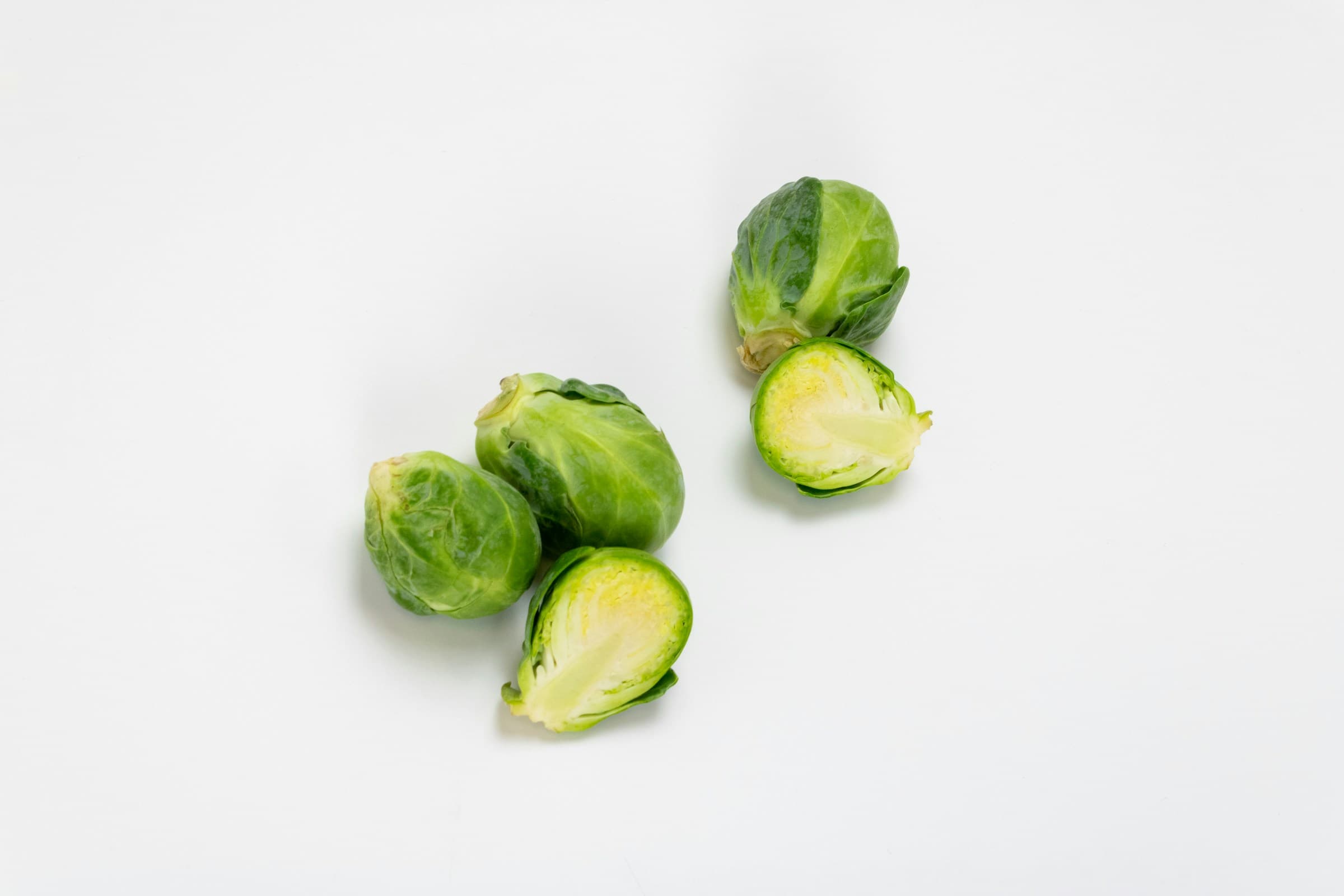There's a love-hate relationship between people and brussels sprouts because of their smell and taste. Some people love them, while others hate them with equal measure. But, can dogs have brussels sprouts? In this article, we tell you whether you can share this cruciferous vegetable with your dog.
Brussels sprouts are a good and safe vegetable option for your dog. They contain vitamins and fiber that are healthy for your dog. However, you should serve them plain, with no other ingredient that may be harmful to dogs like onions.
Dogs get their nutrients from their primary diet. Brussels sprouts should therefore be given in moderation.
Advantages of Feeding Your Dog Brussels Sprouts
Are brussels sprouts good for dogs? Absolutely. They are rich in fiber, antioxidants, and vitamins that are good for your dog's overall health.
Brussels sprout benefits include inflammation reduction, bone health, and helping with bowel movement. Vitamin K helps with proper blood clotting and protection of the heart by regulating blood calcium levels. Also, it helps with building bones. Antioxidants are good for blood circulation and reduction of inflammation.
Brussels sprouts are low in carbohydrates, calories, and have no sugar. This makes it the perfect vegetable for diabetic and obese dogs. Fiber is good for healthy bowel movement. Minerals like calcium and potassium are good for cell function, bone health, and proper functioning of the nervous system.
Downsides of Feeding Your Dog Brussels Sprouts
Do brussels sprouts cause gas? This is a popular question with dog owners about feeding sprouts to their dogs.
Although brussels sprouts are good for your dog, their biggest downside is gas. It contains a lot of isothiocyanate, a phytonutrient found in all cruciferous vegetables. Isothiocyanate helps intestinal muscles to push food and waste through the gastrointestinal tract. As this happens, it results in the release of extra bacteria that are released as gas.
Small amounts of brussels sprouts are good for your dog as they help with bowel movement. However, if your dog eats them in excess, it will cause diarrhea and stomach problems. Also, it can result in flatulence and a smelly house for you.
Brussel sprouts can also be a choking hazard for your dog. The tough stalks of sprouts shouldn't be given to dogs.
How to Serve Brussels Sprouts for Your Dog
Brussel sprouts and dogs are a healthy combination. You can serve sprouts to your dog by boiling, steaming, or microwaving them. Steaming is the better option as it preserves all the nutrients. Boiling, on the other hand, causes the loss of all the nutrients.
Ensure that you only serve fresh, firm, and green sprouts. Avoid brussels sprouts that are brown or have withered leaves. These cause watery stools.
Also, raw brussels sprouts are a no for your dog. The tough stalks can be a choking hazard and hard to digest. Also, avoid frozen ones, too.
Before serving your dog with brussels sprouts, you should:
Wash them thoroughly to remove pesticide residues and dirt
Remove a huge part of the stem
Cut them into small sizes
Steam for about 5 minutes then serve
If your dog is on a diet or has food allergies, consult your vet before feeding them brussels sprouts.
Always start by serving small portions and observe the animal for any reaction or symptoms.
How Many Brussels Sprouts Can Dogs Eat?
The size, lifestyle, and weight of your dog will determine the amount of brussels sprouts they may eat. Small dogs usually eat one, while big dogs can eat 2-3.
Like with any other treat or food topper, always follow the 10% rule of thumb. Treats should only compose 10% of your dog's diet.
Conclusion
Can dogs have brussels sprouts? Yes. They are safe and good for your dog. Packed with vitamins, antioxidants, and fiber, they're a healthy vegetable for your furry friend.
Frequently Asked Questions
Can dogs eat cabbage?
Yes. Cabbage helps with their digestive system.



